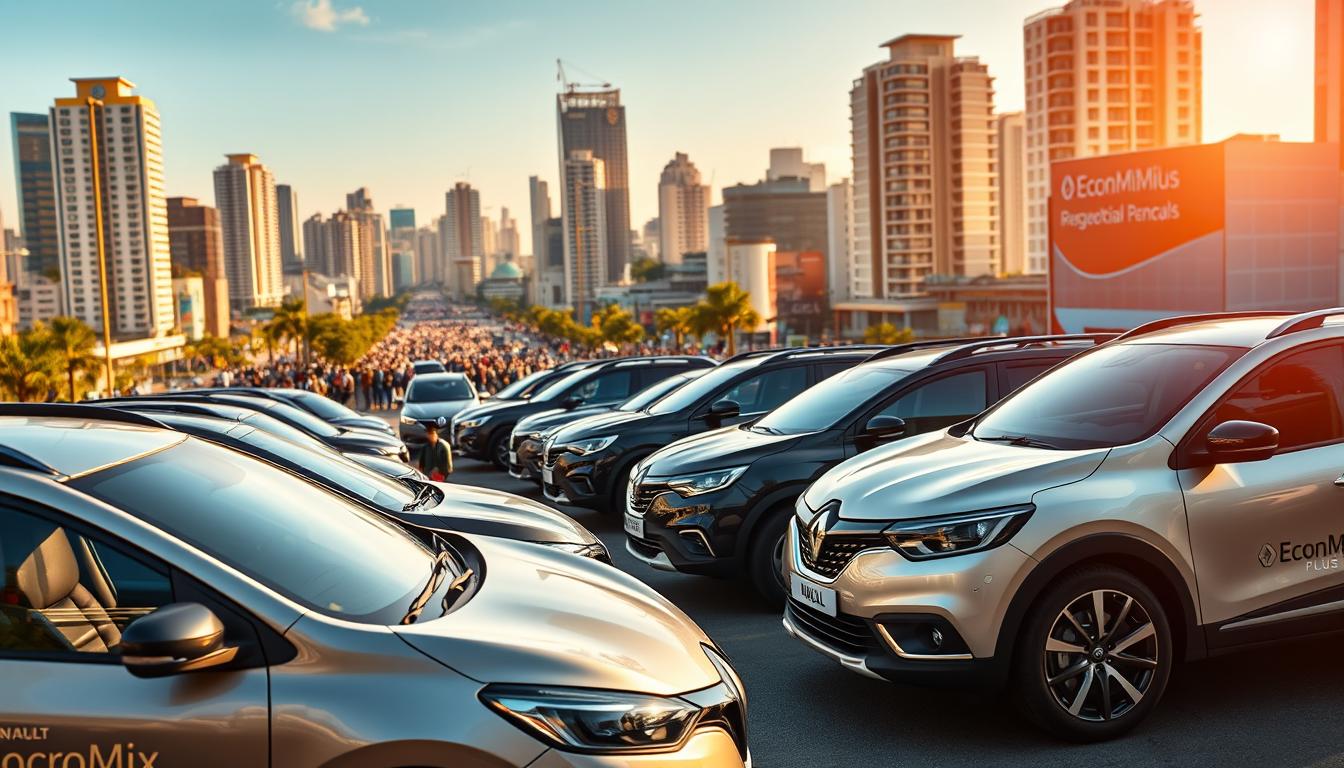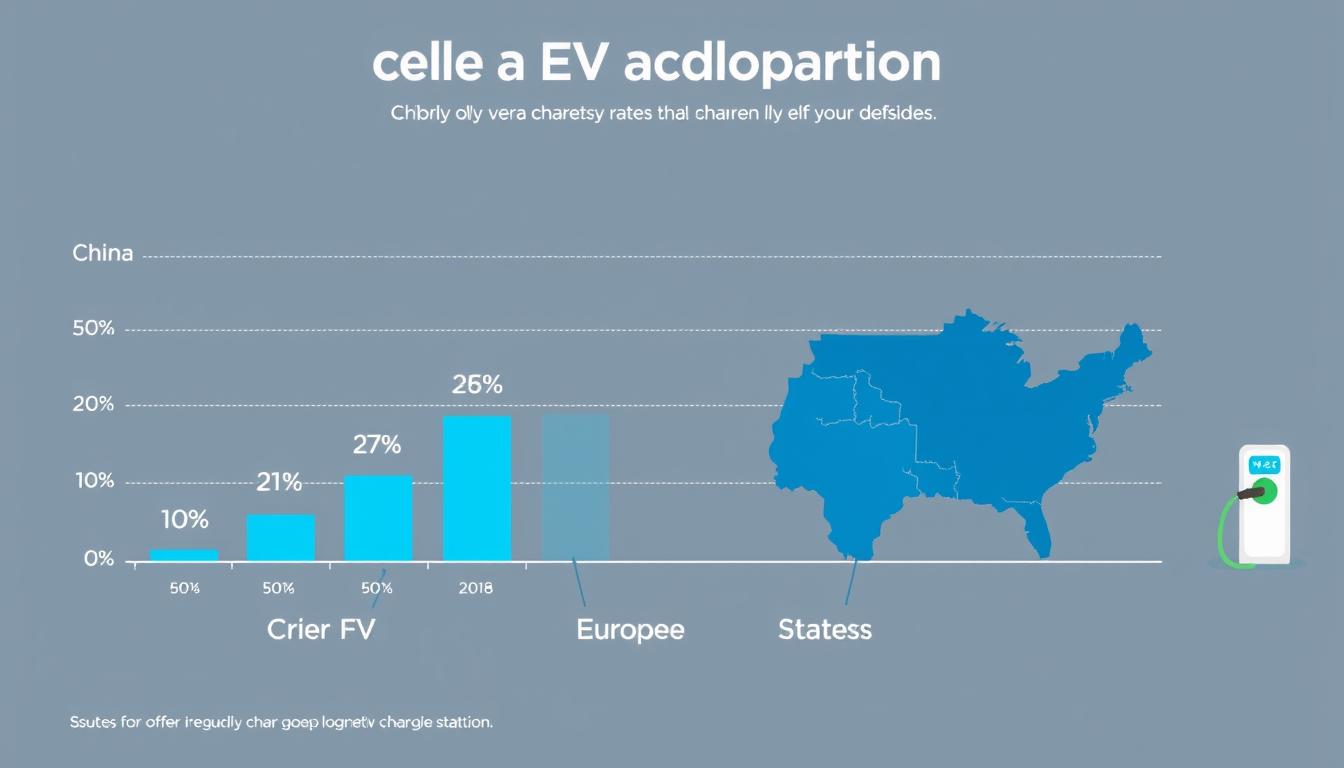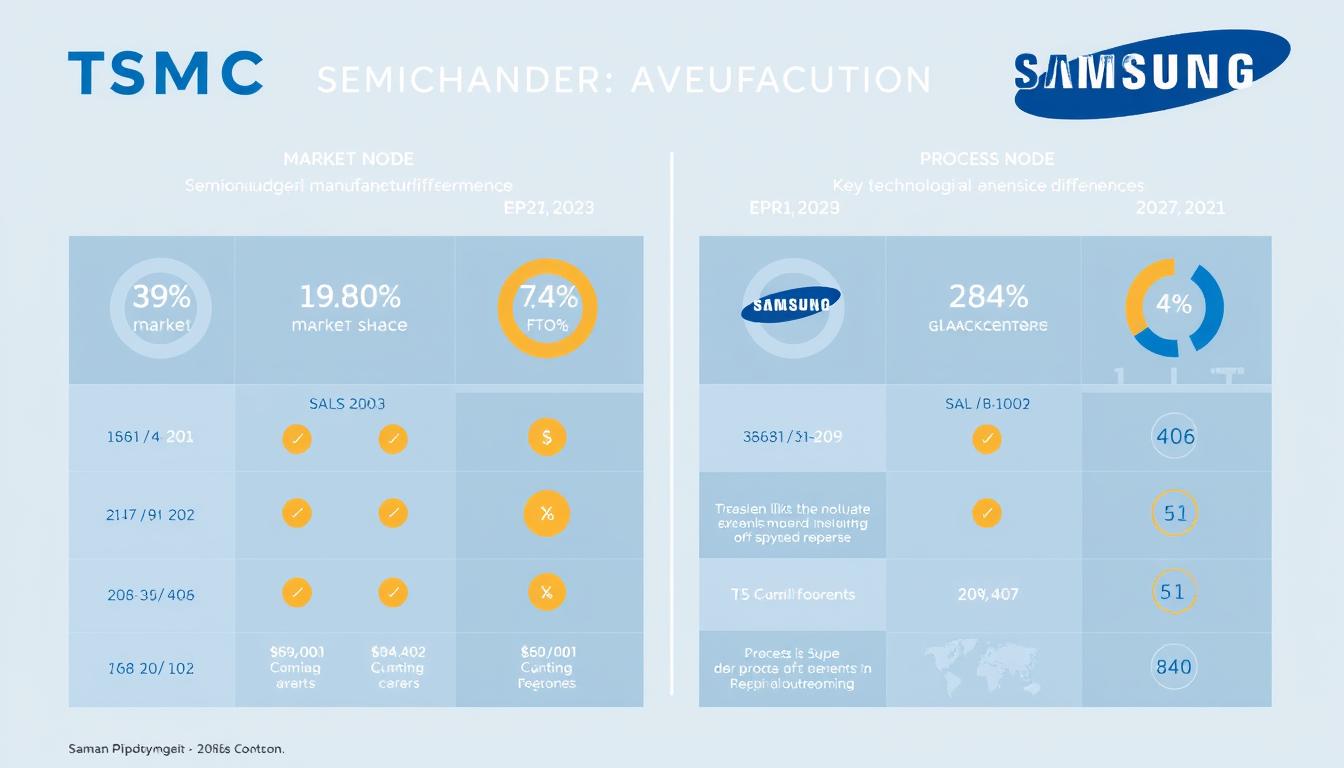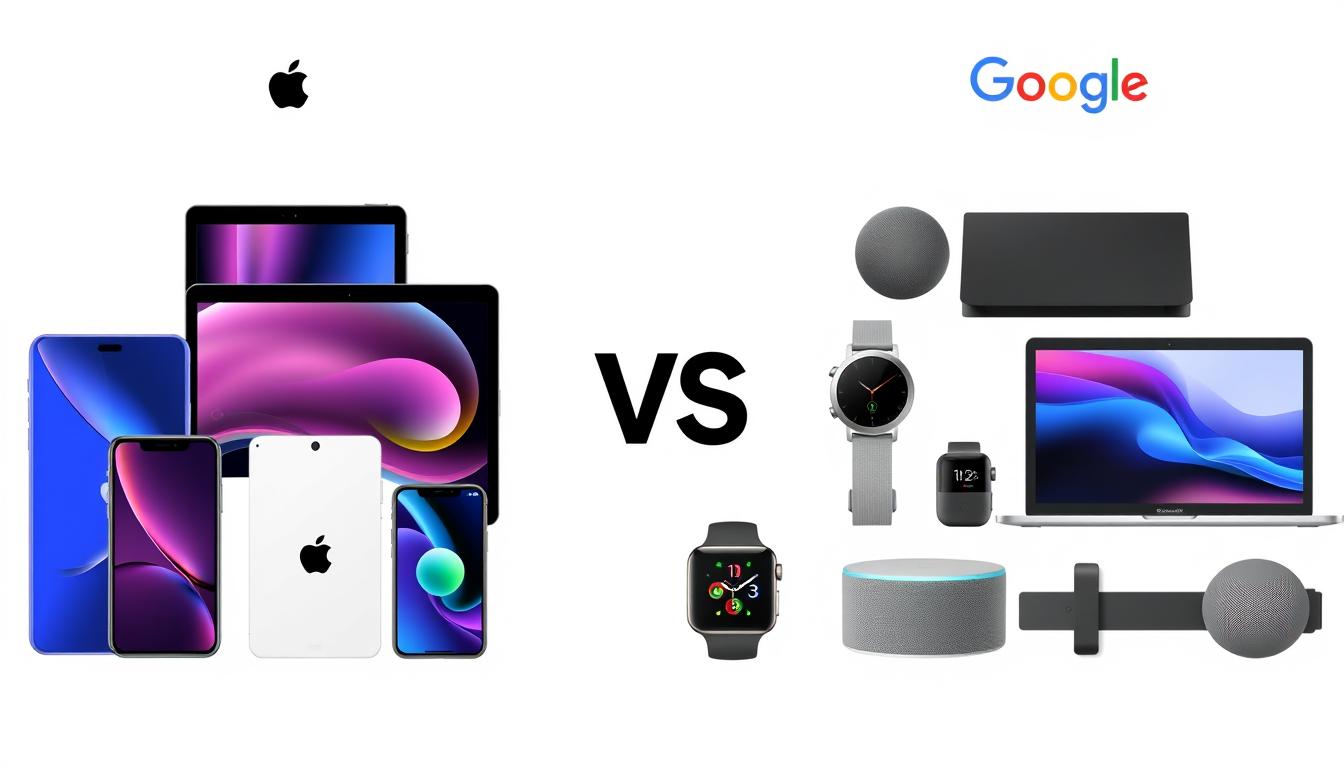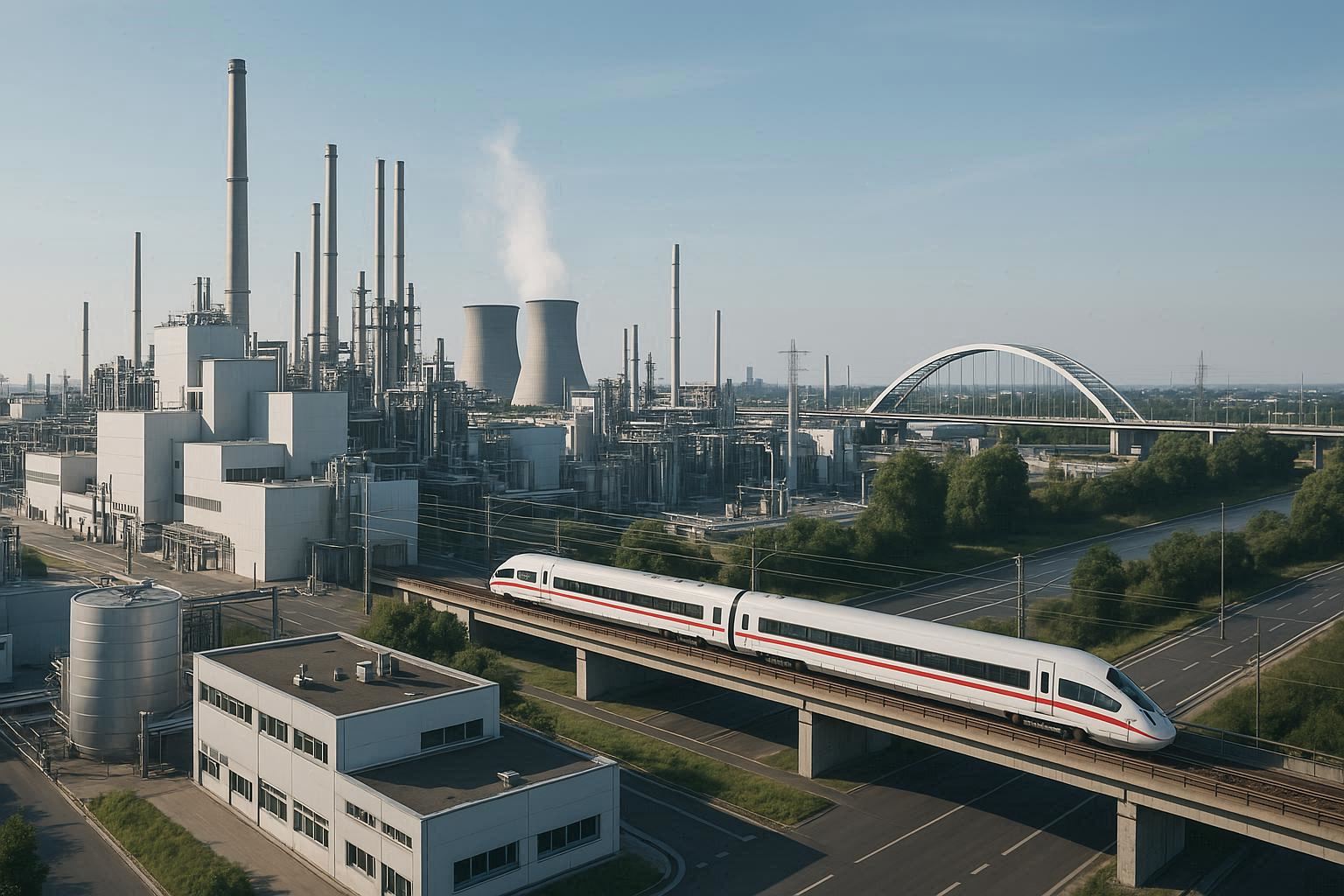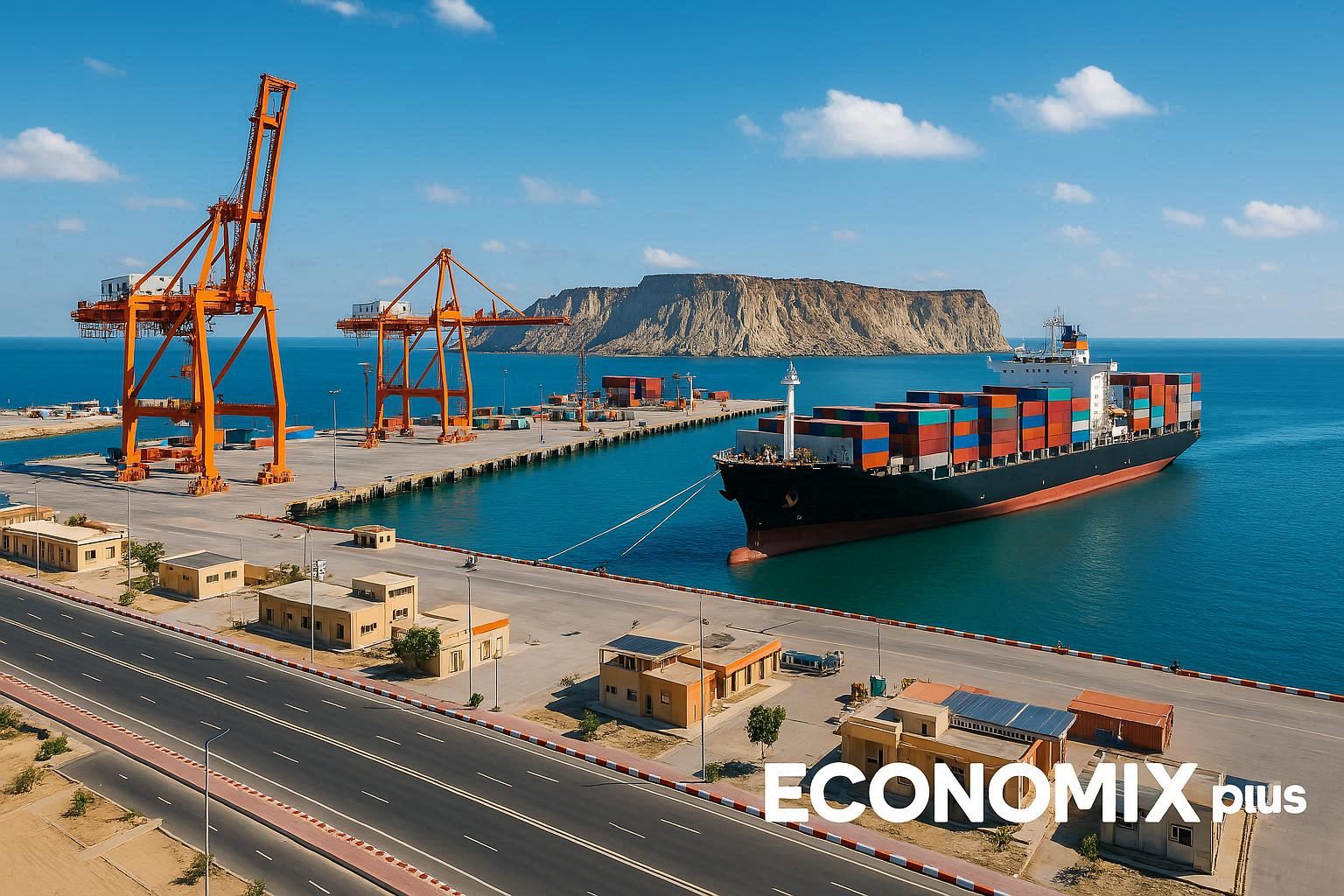Why is a French automotive brand gaining such strong traction in regions like Brazil, South Korea, and Morocco? The answer lies in a combination of strategic planning, innovative vehicle offerings, and a deep understanding of local markets.
In 2024, Renault achieved impressive sales growth, with a 10% increase in Brazil and an astounding 81% surge in South Korea. The Kardian SUV, for instance, has become a standout performer, with over 5,200 registrations in Brazil alone. This success highlights the brand’s ability to deliver vehicles that resonate with diverse consumer needs.
Renault’s International Game Plan 2027 serves as the backbone of its expansion strategy. By focusing on emerging markets, the brand has positioned itself as a global leader. Its balanced approach to hybrid and electric vehicles further strengthens its competitive edge.
As the world’s best-selling French automotive brand, Renault continues to adapt and innovate. Its ability to blend affordability, quality, and sustainability makes it a top choice for consumers in growing economies.
Key Takeaways
- Renault saw a 10% sales increase in Brazil and an 81% surge in South Korea in 2024.
- The Kardian SUV achieved over 5,200 registrations in Brazil, driving regional popularity.
- Renault is the world’s best-selling French automotive brand.
- The International Game Plan 2027 outlines its strategic expansion in emerging markets.
- A balanced hybrid and electric vehicle strategy gives Renault a competitive advantage.
Introduction to Renault’s Global Presence
Renault’s global footprint extends far beyond its European roots, showcasing its adaptability in diverse markets. In 2024, the Renault Group sold 1.58 million vehicles worldwide, with Europe accounting for 64% of total sales. This dominance highlights the brand’s stronghold in its home region.
While Europe remains a key market, Renault’s growth outside Europe has been remarkable. For instance, South Korea saw an 80.6% surge in sales, reflecting the brand’s strategic focus on emerging economies. Morocco, another standout, holds a 38.4% market share, solidifying Renault’s position as a regional leader.
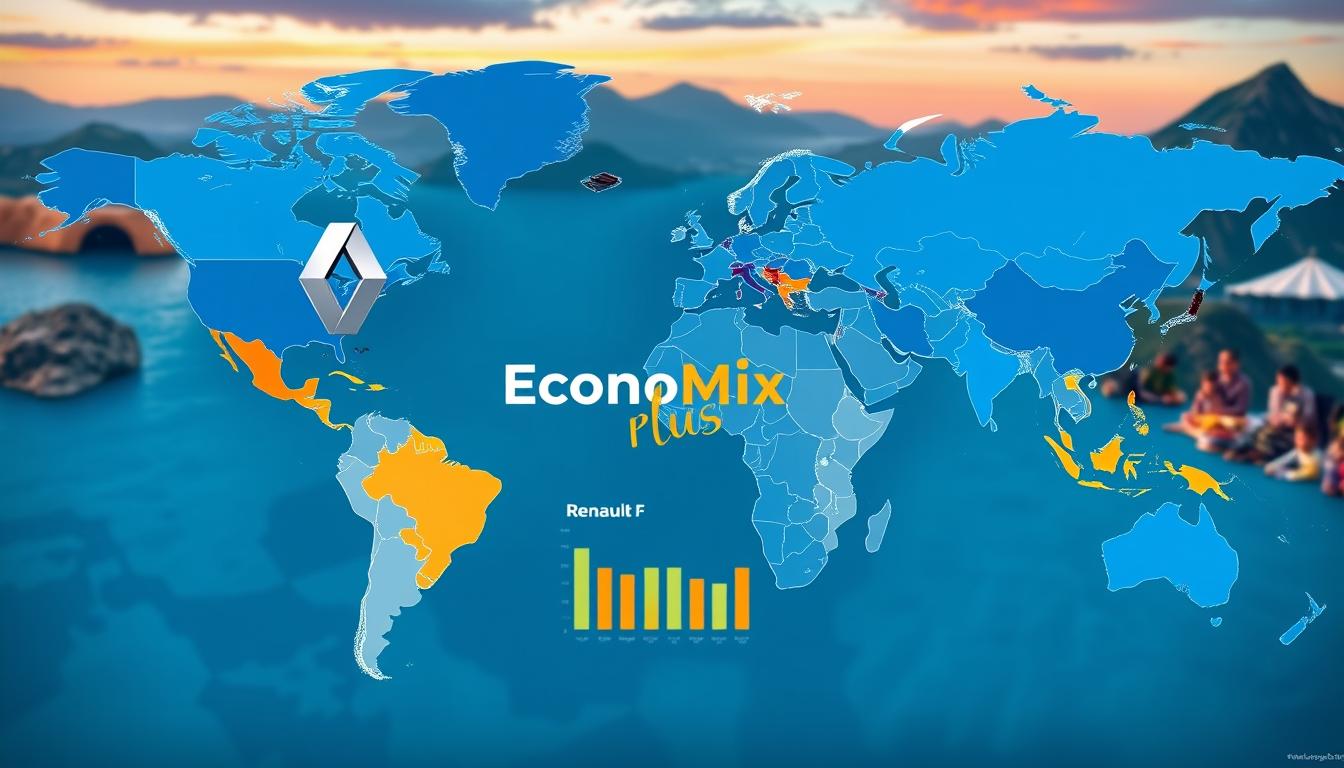
Renault’s success in Europe is driven by its retail customer focus, with 50% of sales coming from individual buyers. This approach ensures a strong connection with consumers, fostering loyalty and trust.
Looking ahead, the Renault Group is set to expand its presence in Turkey and India. These markets are pivotal to the brand’s international game plan, which aims to strengthen its global reach and diversify its customer base.
| Region | 2024 Sales | Growth Rate |
|---|---|---|
| Europe | 1,011,200 | +3.3% |
| South Korea | 85,000 | +80.6% |
| Morocco | 60,500 | +12.4% |
Renault’s ability to balance its European legacy with emerging market opportunities underscores its global appeal. This dual focus ensures sustained growth and relevance in an ever-evolving automotive landscape.
Renault’s International Game Plan 2027
Renault’s strategy for global dominance focuses on key regions and countries with high growth potential. The International Game Plan 2027 outlines a clear roadmap to strengthen its presence in dynamic markets and enhance sales of electrified vehicles. This plan prioritizes innovation, tailored solutions, and strategic product launches, including the new renault e-tech electric range of vehicles aimed at retail customers, ensuring the renault brand remains even competitive in the automotive landscape.
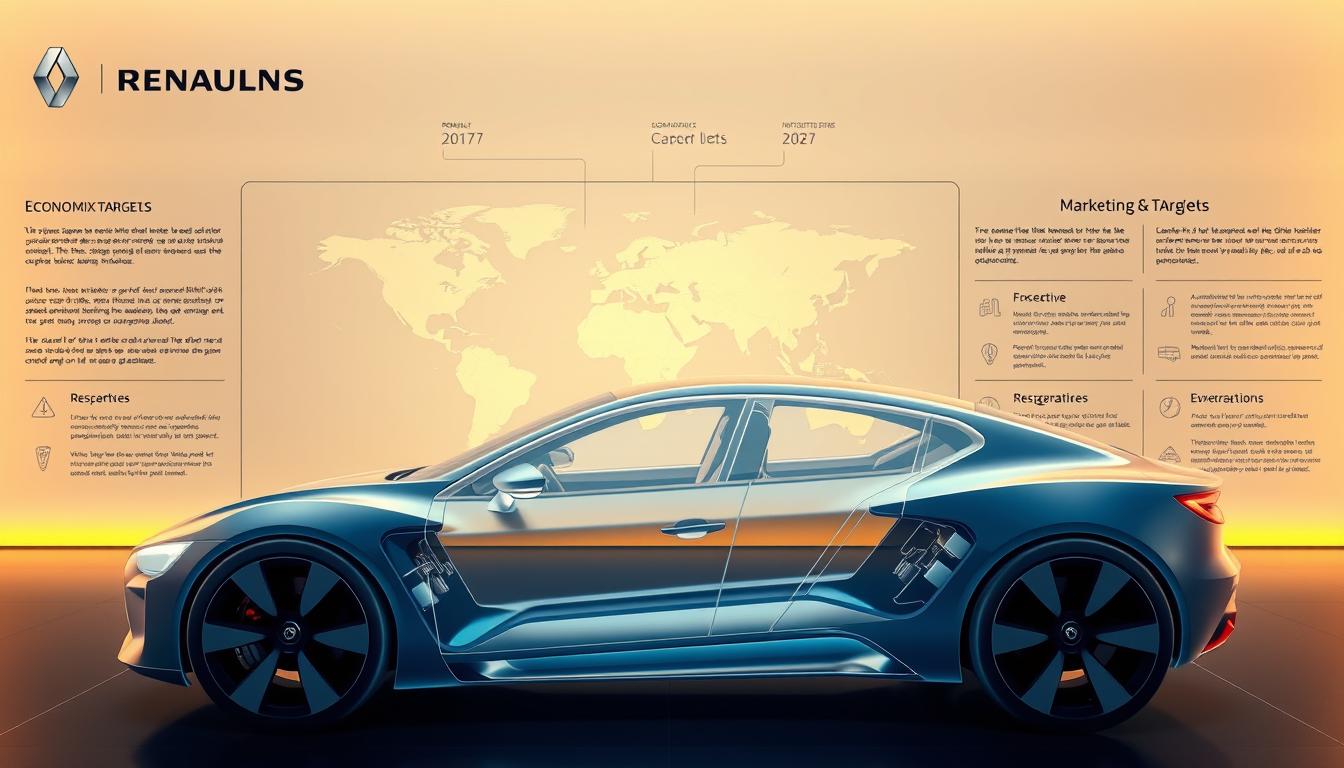
Key Markets Targeted
The brand has identified Brazil, South Korea, Morocco, and Turkey as priority regions. These markets are crucial for driving growth and expanding its global footprint. Each region offers unique opportunities, and Renault’s approach is tailored to meet local demands.
Product Launches and Offensives
Renault’s product offensive includes the launch of the Grand Koleos in South Korea. This flagship SUV has driven an impressive 81% sales growth in the region. The Kardian SUV, initially launched in Brazil, is now expanding to Mexico and Morocco in a phased rollout.
In Turkey, the Duster is set to debut as part of the 2027 strategy. This model is expected to resonate with local consumers, further solidifying Renault’s position. Additionally, plans for a new C-segment SUV in 2025 aim to cater to international markets, showcasing the brand’s commitment to innovation.
- Brazil, South Korea, Morocco, and Turkey are key focus areas.
- Grand Koleos drives 81% sales growth in South Korea.
- Kardian expands to Mexico and Morocco after its success in Brazil.
- Duster launch in Turkey aligns with the 2027 strategy.
- New C-segment SUV planned for 2025.
Renault’s Product Offensive in Emerging Markets
Renault’s focus on electrification and traditional engines drives its global success. The renault brand’s product offensive combines innovation with local adaptability, ensuring it meets diverse consumer needs and points of interest in various countries. This dual strategy is reshaping its presence in key markets, particularly with electrified vehicles like the renault e-tech electric, which are gaining traction outside Europe.
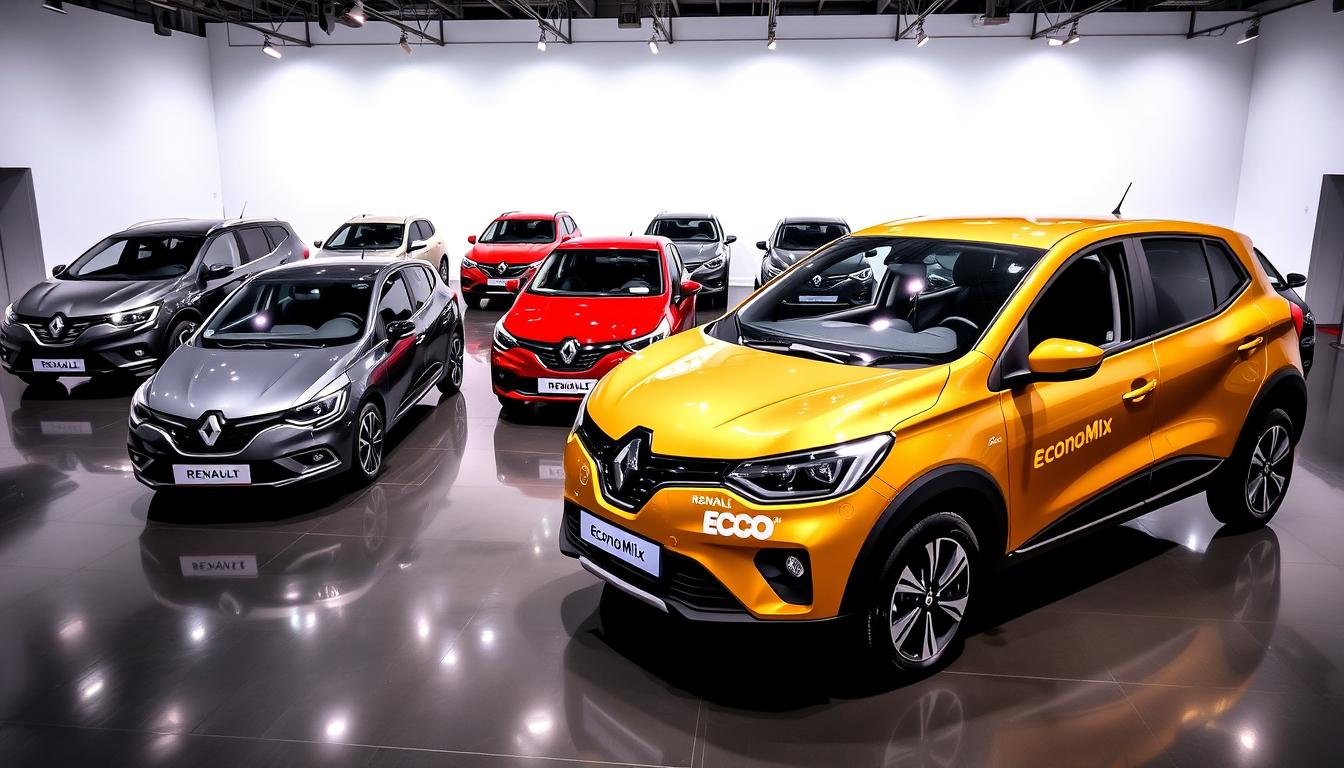
Electric and Hybrid Models
Renault’s electrified vehicles accounted for 20% of European sales in 2024. The Kardian SUV, featuring both hybrid and combustion engine options, has been a standout performer in Brazil. Its hybrid variant resonates with eco-conscious consumers, driving regional success.
The Scenic E-Tech Electric, named Car of the Year 2024, further boosts the brand’s credibility. This model showcases Renault’s commitment to sustainable mobility. Looking ahead, the Renault 4 E-Tech Electric is set to launch in 2025, targeting emerging markets with its affordable and efficient design.
Traditional Combustion Engine Models
While electrification is a priority, traditional combustion engine models remain vital. The Duster, for instance, is a volume driver in price-sensitive regions. Its affordability and reliability make it a popular choice in markets like Turkey and Morocco.
Renault’s balanced approach ensures it caters to diverse consumer preferences. By offering both hybrid and combustion engine options, the brand maintains its competitive edge in emerging economies.
| Model | Type | Key Market |
|---|---|---|
| Kardian | Hybrid/ICE | Brazil |
| Scenic E-Tech Electric | Electric | Europe |
| Duster | ICE | Turkey |
Renault’s Sales Performance in Emerging Markets
Emerging markets have become a cornerstone of Renault’s global expansion. The renault brand’s ability to adapt to local needs has driven impressive sales growth in key regions outside europe. From Brazil to South Korea, Renault’s strategic focus on its renault e-tech electric vehicles continues to yield positive results, thanks strong sales points in the year, with vehicles sold excluding pick-ups.
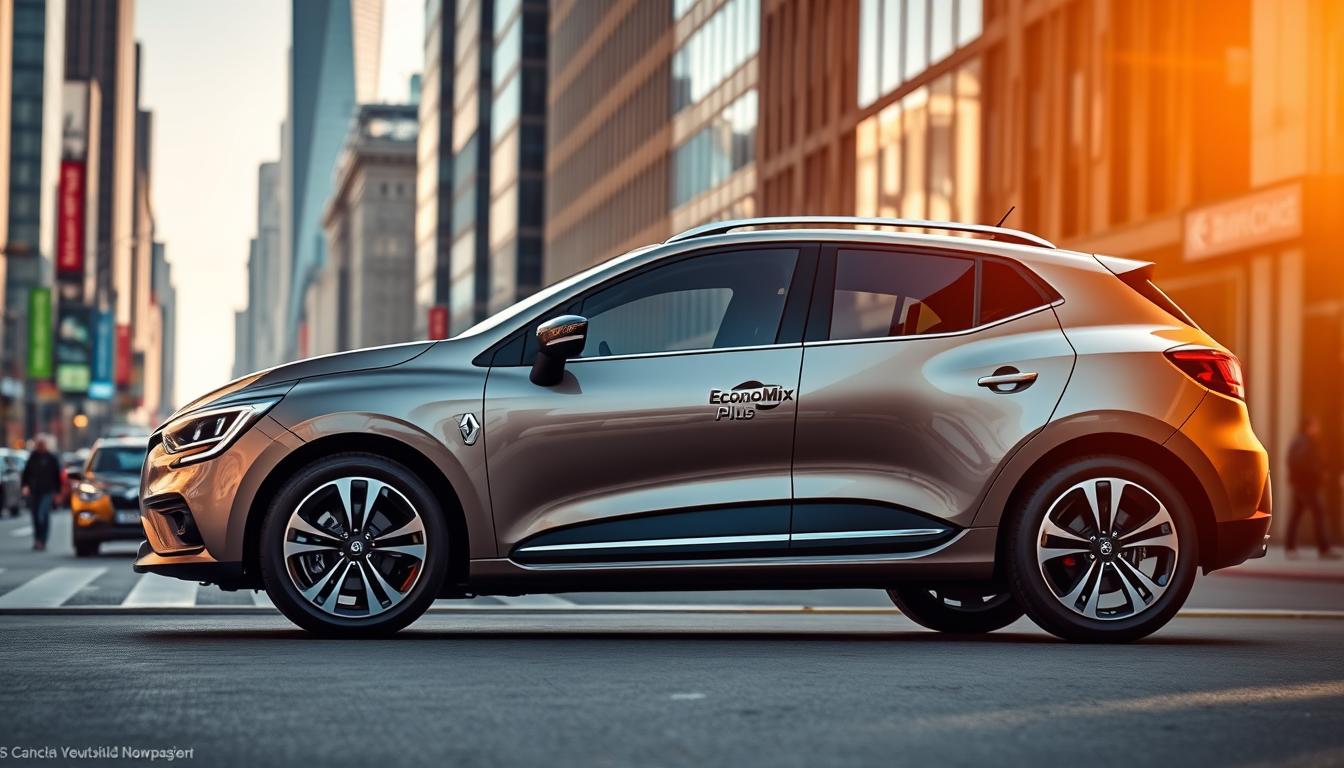
Brazil: A Success Story
In 2024, Renault achieved a 10.3% increase in sales in Brazil, with 139,214 vehicles sold. The Kardian SUV played a significant role, with over 5,200 registrations. This model’s popularity highlights Renault’s ability to cater to Brazilian consumers’ preferences.
With a 5.6% market share, the brand has solidified its position in the region. Its focus on affordability and reliability resonates with local buyers, making it a trusted choice.
South Korea: A New Frontier
South Korea saw an astounding 80.6% surge in sales, reaching 39,826 units. The Grand Koleos, produced locally, has been a major driver of this growth. Its tailored design and features align perfectly with South Korean consumer demands.
Despite a smaller market share of 2.5%, Renault’s presence in South Korea is growing rapidly. The brand’s localized approach ensures it remains competitive in this dynamic market.
Morocco and Turkey: Regional Stability
Morocco recorded a 7.2% increase in sales, with 67,686 vehicles sold. This growth underscores Renault’s dominance in the African market. In Turkey, the brand holds a 13.5% market share, with 167,262 units sold, solidifying its role as a regional hub.
| Region | 2024 Sales | Growth Rate |
|---|---|---|
| Brazil | 139,214 | +10.3% |
| South Korea | 39,826 | +80.6% |
| Morocco | 67,686 | +7.2% |
| Turkey | 167,262 | +13.5% |
Renault’s Brand Strategy in Emerging Markets
Renault’s approach to branding in emerging markets combines innovation with cultural sensitivity. The brand focuses on delivering value while building strong relationships with customers. This strategy ensures it remains competitive in diverse regions.
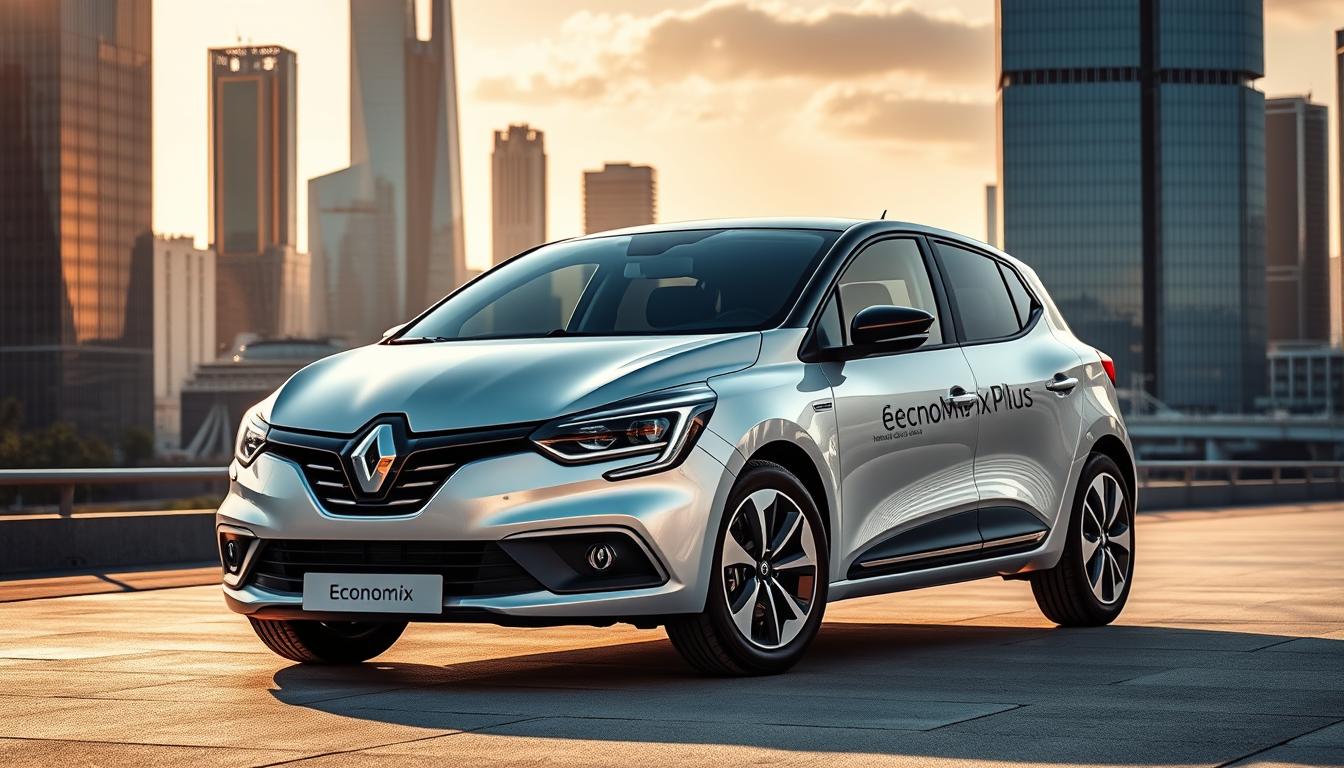
Marketing and Branding Efforts
Renault’s marketing campaigns are tailored to local preferences. For example, the Duster’s campaign in Turkey highlights its rugged design and affordability. Similarly, the Kardian’s launch in Latin America emphasizes its hybrid capabilities and modern features.
These localized efforts reflect Renault’s commitment to understanding and meeting regional needs. By focusing on retail customers, the brand has strengthened its presence in key markets.
Customer Engagement and Loyalty
Renault’s loyalty programs play a crucial role in retaining customers. In Brazil, the brand offers service packages that include maintenance and repairs. This approach builds trust and encourages repeat purchases.
Premium trims like Iconic and Esprit Alpine are used for upmarket positioning. These models appeal to consumers seeking higher-end features, further enhancing the brand’s reputation.
Additionally, the Pro+ network supports fleet sales in LCV-heavy markets. This initiative ensures Renault remains a trusted partner for businesses.
Renault’s value-centric approach ensures it stays relevant in a rapidly evolving automotive landscape. By blending innovation with cultural sensitivity, the brand continues to thrive in emerging markets.
Renault’s Technological Innovations
Renault’s commitment to cutting-edge technology sets it apart in the automotive industry. The brand continuously invests in advanced technologies to enhance performance, sustainability, and user experience. From electric vehicles to hybrid systems, Renault is redefining mobility for the modern era.
Electric Vehicle Technology
Renault’s e-tech electric lineup is a testament to its focus on sustainable mobility. The AmpR Small/Medium platforms reduce production costs, making EVs like the Renault 5 E-Tech accessible at €25,000. This affordability broadens the range of options for eco-conscious consumers.
Google-built infotainment systems, with an 81% adoption rate, enhance the driving experience. These systems integrate seamlessly with smartphones, offering navigation, entertainment, and connectivity features. Renault’s electric vehicle technology ensures a balance between innovation and practicality.
Hybrid Technology
Renault’s full-hybrid systems, featured in models like the Clio and Captur, have driven a 30% sales growth in Europe. These systems combine fuel efficiency with reduced emissions, appealing to environmentally aware drivers.
The 4CONTROL steering system, adopted in 29% of SUVs, improves handling and stability. Additionally, the Solarbay roof, with a 42% uptake, adds a premium touch by providing natural light and energy efficiency. Renault is also previewing bidirectional charging with Mobilize Power, a feature set to revolutionize energy usage in emerging markets.
| Technology | Adoption Rate | Key Benefit |
|---|---|---|
| AmpR Platforms | Wide | Cost-effective EVs |
| Google Infotainment | 81% | Enhanced connectivity |
| 4CONTROL Steering | 29% | Improved SUV performance |
| Solarbay Roof | 42% | Premium differentiation |
Renault’s focus on innovation ensures it remains a leader in the automotive industry. By combining affordability, sustainability, and advanced features, the brand continues to meet the evolving needs of consumers worldwide.
Renault’s Competitive Edge in Emerging Markets
Renault’s ability to balance affordability and innovation gives it a strong foothold in competitive markets. The brand’s strategic pricing and focus on quality have made it a trusted choice for consumers in diverse regions.
Pricing Strategy
Renault’s tiered pricing approach ensures it caters to a wide range of budgets. For example, the Kardian SUV starts at €18,000 in Brazil, making it an attractive option for cost-conscious buyers. In Turkey, the Duster offers a 5-year warranty, adding significant value for customers.
Local production in Brazil reduces costs by 15-20%, allowing the brand to maintain competitive pricing. This strategy not only enhances affordability but also improves responsiveness to market demands.
Quality and Reliability
Renault’s commitment to quality is evident in its vehicles’ performance and durability. The Duster, for instance, has received J.D. Power awards for reliability in Morocco, reinforcing the brand’s reputation for excellence.
Residual values of Renault vehicles outperform market averages in Europe, highlighting their long-term value. This focus on quality ensures customer satisfaction and loyalty, even in price-sensitive markets.
- Kardian starts at €18,000 in Brazil, offering affordability and modern features.
- Duster’s 5-year warranty in Turkey provides peace of mind for buyers.
- J.D. Power awards for Duster reliability in Morocco underscore its quality.
- Local production in Brazil reduces costs by 15-20%, enhancing competitiveness.
- Residual values outperform market averages, ensuring long-term value.
Renault’s industrial strategy focuses on optimizing quality and cost, making it a leader in emerging markets. By combining affordability, reliability, and innovation, the brand continues to thrive in dynamic regions.
Renault’s Future Plans in Emerging Markets
Renault is setting the stage for future growth with ambitious plans in dynamic regions. The brand’s strategy focuses on launching new models and expanding its production capabilities to meet growing demand.
Upcoming Models and Launches
In 2025, Renault will introduce the Renault 4 E-Tech Electric, targeting India and Southeast Asia. This affordable electric vehicle is set to launch in Q3, offering eco-friendly mobility solutions. Additionally, a new C-segment SUV will debut in Asia, catering to the region’s growing SUV market.
The Dacia Bigster, an ICE/hybrid model, is also in the pipeline for South America. This versatile vehicle combines rugged design with hybrid efficiency, appealing to diverse consumer needs.
Expansion Plans
Renault is ramping up production capacity in key regions. In Morocco, factory expansions will increase output by 20%, supporting the brand’s goal to double its African market share by 2027. Turkey is another focus area, with plans to enhance its role as a regional hub.
R&D investments in Argentina are paving the way for ethanol-compatible engines, aligning with local fuel preferences. These efforts underscore Renault’s commitment to innovation and market adaptability.
| Region | Focus | Goal |
|---|---|---|
| Morocco | Factory Expansion | +20% Capacity |
| Turkey | Regional Hub | Enhanced Production |
| Argentina | R&D Investments | Ethanol-Compatible Engines |
Renault’s future plans reflect its dedication to innovation and growth. By launching new models and expanding its footprint, the brand is well-positioned to thrive in emerging markets.
Conclusion
Renault’s success in dynamic regions stems from its ability to blend innovation with affordability. The brand has achieved significant growth by offering localized models and flexible hybrid and electric options. This approach ensures its vehicles meet diverse consumer needs while maintaining competitive pricing.
Strategic pricing and a focus on quality have made Renault a trusted choice in price-sensitive markets. The brand’s 2027 goal to double revenue in emerging economies highlights its commitment to expansion. Award-winning electric models, like the Renault 5 E-Tech, further differentiate the brand as a leader in sustainable mobility.
Looking ahead, Renault is poised for sustained growth in regions like Brazil and South Korea. Fresh product launches and a focus on innovation will continue to drive its success. By staying adaptable and consumer-focused, Renault remains a key player in the global automotive industry.
